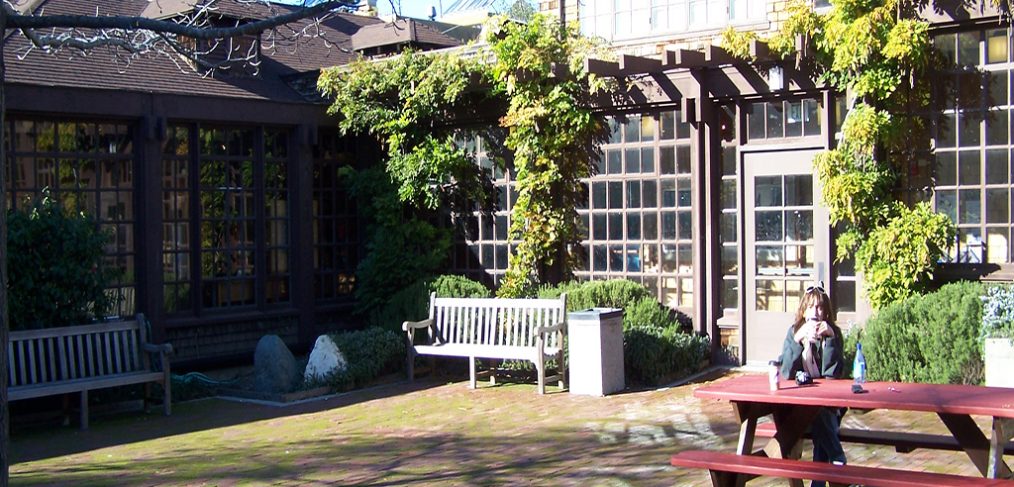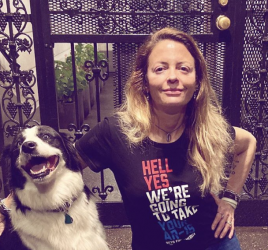
An Open Letter to Berkeley J-school Dean Edward Wasserman Regarding the Proposed $10,250 Fee
On September 14, 2014, the University of California at Berkeley Graduate School of Journalism’s dean announced his intention to pursue a $10,250 fee. The news came as a shock to alumni, students, and educators. Doubly concerning was Dean Edward Wasserman’s decision to pursue this increase without faculty support.
In the last week, I’ve had the chance to talk with fellow alumni and reflect upon what this increase would mean for the culture of the school. Today, I sent this letter to Dean Wasserman and various media outlets that covered the initial announcement.
**Update: At day’s end, I received a heartfelt and polite response from the Dean. The particulars are here.**
* * *
September 19, 2014
From:
Brad King, Class of 2000
www.thebradking.com
To:
Edward Wasserman, Dean
University of California at Berkeley, Graduate School of Journalism
Re: Proposed tuition hike
Dear Dean Wasserman:
My name is Brad King (’00), and I’m writing because I’m concerned about the new $20,000 tuition fee you’ve proposed for incoming students. I fear the unintended consequences of your initiative on the J-school and its legacy.
I care deeply about this issue because the J-school changed my life.
As an Appalachian kid from a small town, there weren’t many ways out. This isn’t to say my situation was dire. I lived in a good, solid, working-class town with hard-working people who did an honest day’s labor and expected to be treated fairly in return. However, the roads leading out of our little town were covered with quite a bit of brush. Finding your way out wasn’t easy.
Growing up, I was lucky. My mother and father encouraged my love for reading. I devoured books and stories. I read magazines, such as boing boing, The Whole Earth Review, and Mondo2000, that grew out of the cyber-culture in the Bay Area. This may seem a small detail to you, but for me those publications meant everything. As I looked around my hometown in 1984 when I was 12 and realized there weren’t other people like me, I could always dial into the BBSs in Berkeley and read what was happening in that exotic place. I found a community of like-minded people years before I stepped foot in California.
In 1997 when I decided to attend graduate school, I sent my application to only one place: the Berkeley J-school. (I didn’t realize how crazy that was at the time.)
I applied knowing full well that in order to attend I would need to work a full-time job and take out student loans. In my two years, I packed away enough debt that I continue to pay it off in 2014.
Still, not a day goes by that I am not happy with my decision to attend.
Even though we were near the bottom rung of the socioeconomic ladder, I don’t mean to suggest we were poor. I’m not a cultural warrior who claims to come from an impoverished background in order to build an argument on the backs of those who truly suffer. I merely mean that my family’s lifestyle was modest. My mother, father, and extended family pooled money so that I could attend a good state college, but that was as far as our resources went.
Because of this I accepted that I would pay my Berkeley tuition, which was part of the toll on the road to a better future. It was a way to clear a bit of that brush off the roads leading out of my hometown. The tuition was my own personal investment in my future, and it has made all the difference. I owe my career and my professional life to the Berkeley J-school.
Today my full-time job is as a professor at Ball State University. Since my graduation from Berkeley, I’ve worked at Wired magazine and Wired.com, I’ve written a book (and have another in the pipeline), I’ve worked at MIT and Carnegie Mellon, I’ve taught programs in England, and I’ve been asked to speak about storytelling in the digital age in Hungary and South Korea.
I have served on the advisory board for South by Southwest Interactive for more than a decade, and I’ve hosted its largest entrepreneur event (Accelerator) since its inception; I currently serve on the advisory board for the Indiana Writers Center; and I serve as both an advisory board member and an editor for Carnegie Mellon’s ETC Press.
None of these doors would have been opened had I not graduated from Berkeley, which is why my heart ached as I read your email about the tuition.
In 1998, I worked a full-time job and took out $40,000 in loans to attend the J-school. With the proposed tuition hike, my loans would total more than $80,000 (assuming I could find a job to cover rent and living expenses.)
I can unequivocally tell you that with your proposed tuition hike Berkeley would now be forever out of my reach.
This isn’t a plea that is ignorant of university funding. A professor myself, I understand the financial realities of running an independent program. I just spent 2 1/2 years meeting with my university’s president and cabinet working through a budget for a new program.
Our current national funding crisis requires all parties in higher education to rethink our operation. My issue: While it’s very easy to create short-term funding avenues, those decisions can undermine the culture of a school.
No matter what the final decision on the tuition hike, I know the J-school will find students. It was at one time a highly ranked school and I know the faculty will once again restore that reputation.
But if the hike is enacted, Berkeley will have effectively cut off access to a large swath of those on the wrong end of the socioeconomic ladder.
So I write this letter to you with a heavy heart.
If the tuition hike is approved, I can no longer in good conscience support the J-school. I have to ask myself: If a school takes no interest in attracting the people who come from where I have, why would I continue to give my support? More importantly, how could I justify such support as I travel and work in Appalachia?
If the fee is adopted, I’ll take down my diploma in my office, I’ll cease conducting entrance interviews, I’ll stop judging student competitions, I’ll no longer visit the campus, and I’ll remove Berkeley’s Knight lectures from my classes. When I speak and give lectures, I’ll use Berkeley as a case study in what went wrong with journalism programs in this country.
These will neither impact your day-to-day operations, nor will it dent the school’s reputation. I have no delusions of grandeur. My small, collective actions will simply be my final contribution to the soon-to-be-removed inclusive culture of the J-school.
I believe whole-heartedly in elite education, and its transformative power. However, I reject socioeconomic elitism. The proposed action may not undermine the education at the J-school, but it will most definitely favor those with more means.
Berkeley has meant more to me than I can ever adequately express. Earning my degree was one of the single, best moments in my life. North Gate Hall was – and has been – a lighthouse for me, a beacon that helped point me in the right direction. Under your watch, however, I fear its light is fading for people like me.
Sincerely,
Brad King, Class of 2000




thebradking just read this. Nicely put. Not a Berkeley grad (U of Illinois ’95), but I was also concerned when I saw news of the fee.
heycori thank you. It’s not something I ever thought I would need to write. I love the J-school. I am concerned about its future.